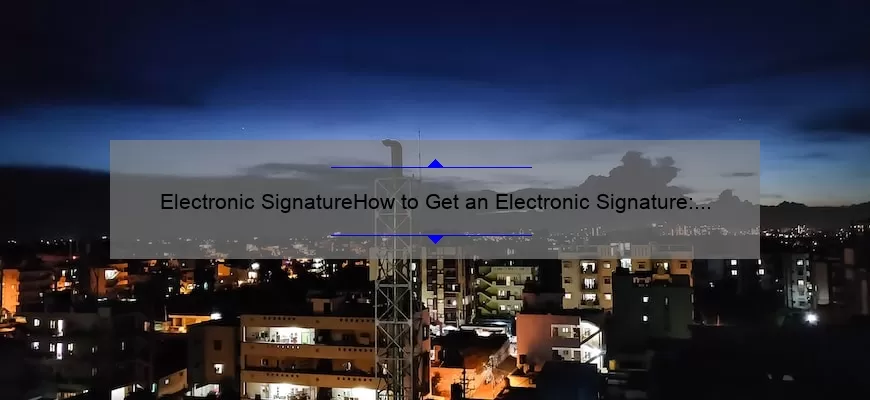How Can I Get an Electronic Signature?
An electronic signature is an electronic way of signing a document and confirming your agreement to its contents. It is a valid and legally binding form of consent and authorization that can be used in place of a physical signature.
In this digital age, electronic signatures are becoming increasingly more common in both the business and personal world. They’re a great way to save time and money while making sure that all parties involved in a transaction are in agreement.
If you’re looking to get an electronic signature, the process is actually quite simple. All you need is a computer or a mobile device with an internet connection and a document to sign.
The first step is to find an electronic signature provider that offers the services you need. There are a variety of companies that offer electronic signature services, so make sure you choose one.
What Are the Benefits of an Electronic Signature?
An electronic signature, or eSignature, is becoming increasingly popular due to its convenience and ease of use. ESignatures provide a secure and legally binding way to sign documents without having to print, sign and scan paper documents. In this blog, we’ll explore the benefits of using eSignatures and why they are quickly becoming the preferred method of document signing.
The most obvious benefit of eSignatures is their convenience. Instead of having to print, sign, scan, and email a document, you can now simply click a few buttons and submit a document with an electronic signature. This saves time, money, and effort, as well as eliminating the need for physical mail and the risk of documents getting lost in the mail.
Another benefit of eSignatures is the security they provide. Electronic documents are encrypted
What Are the Different Types of Electronic Signatures?
The use of electronic signatures (e-signatures) is becoming increasingly popular as businesses realize the convenience and cost-effectiveness of not having to physically sign documents. But what exactly is an e-signature? And what different types are there? This blog post will answer these questions and more.
An e-signature is an electronic representation of a signature that is used to authenticate the identity of the signer and to certify the agreement to the terms of a document. E-signatures are becoming more and more accepted in the legal and business world, as they are considered to be just as reliable and secure as traditional pen-and-paper signatures.
There are several different types of e-signatures that can be used, each with its own set of advantages and disadvantages. The most popular types are:
What Are the Legal Implications of an Electronic Signature?
The legal implications of an electronic signature can be complicated, but they are extremely important to understand. An electronic signature (sometimes referred to as an eSignature) is a way for an individual to digitally sign a document, such as a contract or agreement. It is essentially the same as signing a piece of paper with a pen, but in a digital form.
The first legal implication of an electronic signature is that it is legally binding. According to the Electronic Signatures in Global and National Commerce Act (ESIGN) of 2000, electronic signatures are just as valid as any other type of signature, provided that the signer has agreed to the terms and conditions of the document. This means that if you sign an agreement electronically, it is legally binding and holds the same weight as if you had signed a paper copy of the document.






